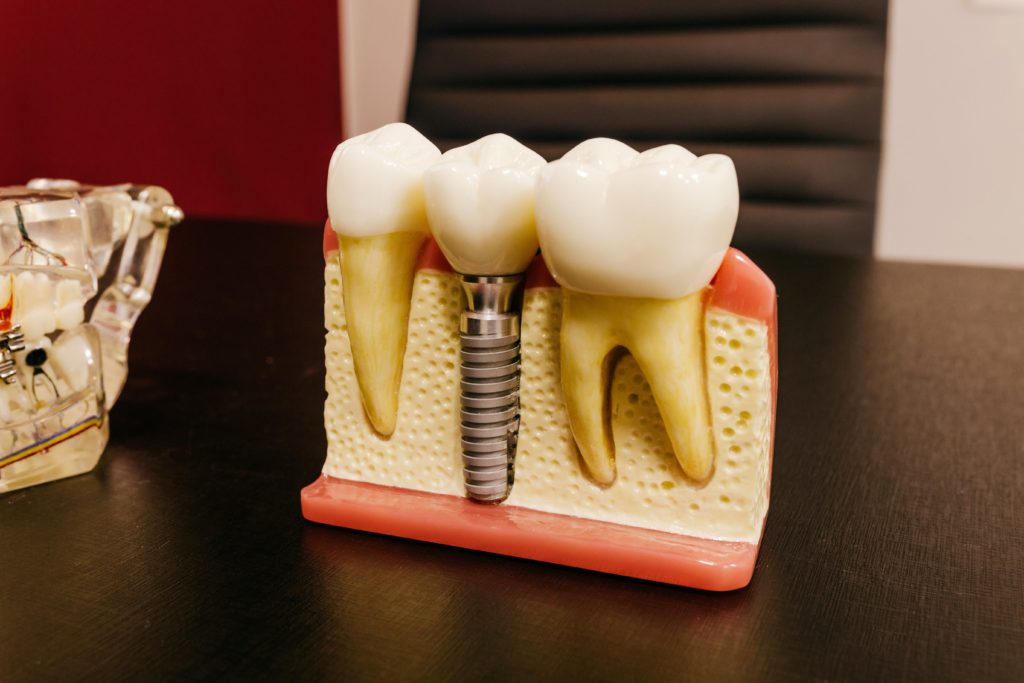
An estimated 178 million Americans are missing at least one tooth. This only gets worse with time, as 30% of people from ages 65 to 74 have no natural teeth left.
Dental implants are a possible solution to this problem. Yet, a common question among people considering this treatment is: are dental implants permanent?
Let’s get into it.
What are dental implants?
Before we go over if dental implants are permanent, let’s first go over what they are. Dental implants are replacement tooth roots in the form of metal posts that create a strong foundation for fixed or removable teeth. Dental implants are typically done if someone has one or more missing teeth. Dental implants are typically appropriate for people with:
- A fully grown jawbone
- Adequate bone to secure the implants
- Healthy oral tissues
- Unwillingness or inability to wear dentures
- A desire to improve speech
The process can take multiple months to complete, most of which will be waiting for your jawbone to unite with the dental implant (metal screw).
How long do dental implants last
You’d be happy to hear that dental implants can last a lifetime with proper care. It’s important to note that while the dental implant is meant to be permanent, the replacement tooth (often in the form of a dental crown) is not. On average, dental crowns last about 15 to 20 years.
Success rates of dental implants
The success rates of this procedure are typically more than 95%. However, it’s important to talk with your dentist about if you are a good candidate for this procedure to prevent failure.
Reasons dental implants fail
While the majority of dental implants are a success, there are many reasons that a dental implant can fail. Here are some.
Lack of maintenance
Just like with natural teeth, proper care is vital for the success of a dental implant. This is because inadequate care can cause gum disease, which can damage both your gums and your jawbone. While inflammation in the gums around your implant can be reversible in the beginning, if it’s left untreated for too long, it can lead to implant failure.
Not enough bone
Insufficient jawbone can cause your implant to fail since the jawbone secures the implant in place. This is why, before getting a dental implant, your dentist will evaluate if you have enough jawbone using X-rays or 3D modeling. If you don’t have enough jawbone, procedures like bone grafting or sinus lifting may be an option. There are also diseases like osteoporosis that can cause bone loss over time, causing your implant to fail.
Grinding
Teeth grinding over time may cause your implant to move (even a tiny amount), which can cause problems after your dental implant surgery while your jaw bone is fusing with the implant (during the osseointegration process). This can lead to implant failure.
Smoking
Not only is smoking detrimental to your health, it can also cause implant failure. In fact, there is research that shows that the implant failure rates for smokers are more than twice the failure rates for non-smokers. This is because smoking can affect the blood flow in the area of the dental implant, again affecting the osseointegration process. Smoking can also cause gum disease.
Medications & medical conditions
There are also many medical conditions that have been linked to dental implant failure. Some of these include diabetes, osteoporosis, bleeding disorders, and cardiovascular disorders. Implant failure rates are also higher in older adults because they may have bone conditions or other underlying medical conditions.
Certain medications and treatments have also been linked to dental implant failure, like immunosuppressive drugs, blood-thinners, and radiation therapy.
Inexperienced surgeon
Your surgeon also contributes to the success of your dental implants. An inexperienced surgeon could design the implants poorly, place the implant improperly, attach the crown before the implant has stabilized, or cause tissue trauma during the surgery. This is why your choice of dentist and oral surgeon is so important.
Dental implant maintenance
Luckily, there are ways that you can contribute to the success of your dental implant. Take care of your implants by:
- Brushing your teeth at least twice a day
- Flossing once a day
- Eating fewer surgery foods
- Visiting the dentist regularly (every six months)
Visit Dr. Ruiz & Associates for dental implants in Burbank, CA
If you’re in need of dental implants in Burbank, CA, area, come visit our office!
If you’re in the Burbank, CA area and are in need of a teeth cleaning, visit our office. Dr. Ruiz is a renowned dentist, educator, and researcher who is known as a pioneer in supra-gingival minimally invasive dentistry, or “above the gums dentistry.” This is a healthier form of dentistry that protects soft oral tissues and produces long-lasting, beautiful results. And all of our staff are trained in these techniques.
Check out our Google reviews and call our office to make an appointment!




